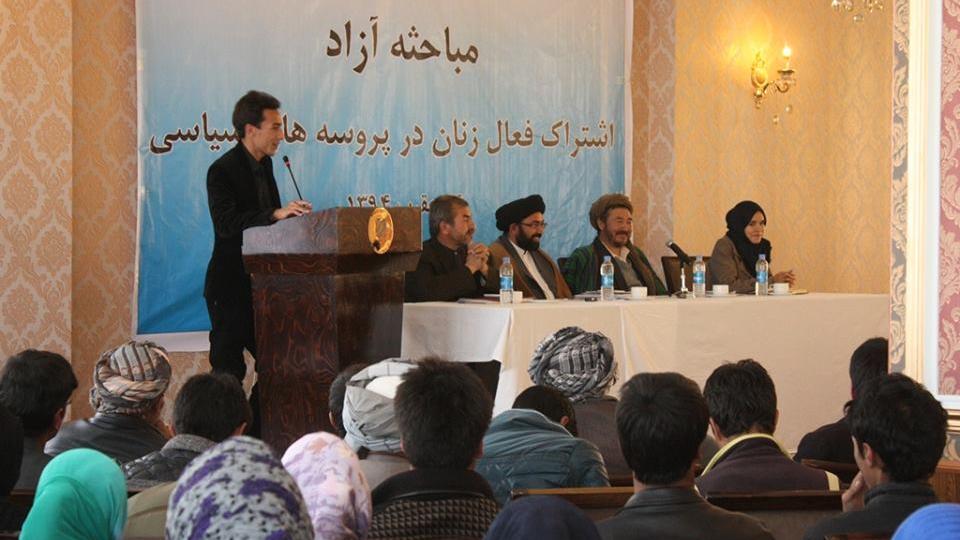BAMYAN - The promotion of women’s participation in Afghan politics was the topic of a UNAMA-supported panel discussion held in Bamyan, the capital of central Bamyan province.
Around 350 young people – the majority of them women – attended the half-day event, with participants representing a diverse cross-section of society including civil society and community groups, religious leadership and political parties.
The panel included the head of the local political parties’ coordination council, a religious scholar, a social activist and an academic. Panelists considered challenges facing the political participation of Afghan women and the role of political parties and civil society in promoting women’s active political participation.
Haji Ahmadi, of the Bamyan Political Parties’ Coordination Council, spoke about the important role of political parties in promoting inclusion of women at political leadership and decision-making levels.
“I know that many political parties have set voluntary quotas for their women members in leadership posts: capacity-building of women politicians is an important issue for political parties,” said Mr. Ahmadi.
Hanif Hussaini, a prominent religious scholar in Bamyan province, referred to the political rights of women in Islamic teachings and the role of women in the history of Islamic politics.
“Women have played a great role in social and political life according to Islamic history and Islam encourages women to take active participation in the social wellbeing of society,” said Mr. Hussaini, who noted that Islam did not put any restriction on the participation of women in political activities.
Ms. Hakima Akbary, a social activist, underlined the significant role that youth can play in raising awareness about the key place of women in the political process.
“Young people have a different perspective on politics: they give importance to the values of transparency and reform, and they want change. Youth are more connected to each other through social media and they can play a vital role in the progress of Afghan society,” said Ms. Akbary.
Sadiq Aliyar, an expert on politics and the peace process, identified challenges women face when trying to participate in social and political life.
“Harmful traditional practices, lack of awareness, illiteracy and low capacity of women politicians are the main reasons hindering effective political participation of women in Afghanistan,” said Mr. Aliyar.
UNAMA is mandated to support the Afghan Government and relevant international and local non-governmental organizations to assist in the full implementation of the fundamental freedoms and human rights provisions of the Afghan Constitution and international treaties to which Afghanistan is a State party, in particular those regarding the full enjoyment by women of their human rights.






